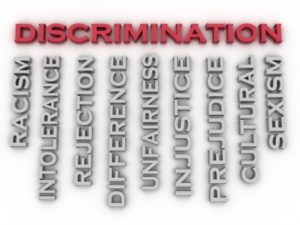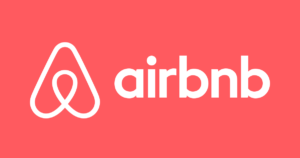
Courtesy David Castillo Dominici
Neighborhood websites have become the newest communication tool to inform communities. Community homeowner associations use websites for disseminating news and information and individual neighbors are using the Internet to communicate and address issues. They also use the Internet to alert each other of various events like street paving or crime. These neighborhood websites also have become havens for rumors, accusations, petty grievances and, oh yeah, racism.
The primary complaint about community websites is that African-Americans and other minorities are often labeled as potential criminals in their own neighborhoods.
 Nextdoor.com provides private social networking for neighborhoods. The company has recently acknowledged that its services has been used for racial profiling. Complaints of racially charged posts have compelled the company to re-examine certain aspects of its site.
Nextdoor.com provides private social networking for neighborhoods. The company has recently acknowledged that its services has been used for racial profiling. Complaints of racially charged posts have compelled the company to re-examine certain aspects of its site.
Nextdoor recently began testing a system where users who report suspicious activity or individuals are asked to describe suspects’ clothing “from head to toe.” This is a departure from the previous method where users used racial descriptions. Users can also flag posts they think are guilty of racial profiling.
Nextdoor also requires user to use their real names when registering and verifies their home address before approving their profiles. By doing this Nextdoor is directly confronting the nastiness of anonymous posts that plague social media.
Using neighborhood websites for racial profiling has another unfortunate effect. These unfounded reports often become a drain on police manpower. Racial profiling has become an extremely sensitive issue with law enforcement. As a result police have become wary of social media reports that hint at someone being out of place based on race alone. On the other hand police are still called and have to respond to citizens complaints. Responding to unnecessary calls draw police away from more serious calls.
 Digital discrimination follows people of color from their homes and neighborhoods and into the market place. One website that has been singled out for digital discrimination is Airbnb. However it is not Airbnb that is the source of racist practices on the site. That comes from the people using the service. In one case a North Carolina host using the Airbnb service was banned after cancelling a reservation then attacking Shani C. Taylor, a black female investment banker with racial slurs.
Digital discrimination follows people of color from their homes and neighborhoods and into the market place. One website that has been singled out for digital discrimination is Airbnb. However it is not Airbnb that is the source of racist practices on the site. That comes from the people using the service. In one case a North Carolina host using the Airbnb service was banned after cancelling a reservation then attacking Shani C. Taylor, a black female investment banker with racial slurs.
She is not the only black person to experience racism from an Airbnb host, Read; “I’m a black man. Here’s what happened when I booked an Airbnb.” According to studies discrimination on Airbnb is rampant.
In its defense Airbnb has taken action and proclaimed its objections against this type of racist activity. Discrimination in public accommodations illegal. The Congressional Black Caucus is pointing this fact out in a letter urging Airbnb CEO Brian Chesky to take action against host racism and discrimination on Airbnb’s platform.
 It is not uncommon for minority owned businesses to be treated differently on the Internet. Airbnb is not alone when it comes to people practicing digital discrimination on its site. Yelp.com is another website that has its reviews tainted by racism. A study by City University of New York revealed that black neighborhoods and business suffer greater scrutiny and negative reviews than white businesses.
It is not uncommon for minority owned businesses to be treated differently on the Internet. Airbnb is not alone when it comes to people practicing digital discrimination on its site. Yelp.com is another website that has its reviews tainted by racism. A study by City University of New York revealed that black neighborhoods and business suffer greater scrutiny and negative reviews than white businesses.
Breaking It Down
Racism has found its way into the cyberspace. Yes, the universe of bits and bytes and 1’s and 0’s is also very black and white. Black people are not really part of the digital economy as owners and full participants. Instead we are a source of income and profit to be abused and exploited. Racism that appears online is the direct offspring of the racism that African-Americans suffer in the real world. In other words nothing has changed. The same people that are discriminating against blacks on the job, in business and commerce are simply using the Internet now. Black people are denied more and pay more and suffer more just because we are black. Its not just the Internet its everywhere. I have no other answer and neither do they.
